Cockatiels, known for their cheerful whistles and adorable crests, are among the most popular pet birds worldwide. Their gentle demeanor, ease of care, and ability to mimic sounds make them a favorite choice for bird enthusiasts.
Cockatiels can form strong bonds with their owners and are well-suited for first-time bird parents. This guide will provide a comprehensive overview of raising and caring for these delightful birds.
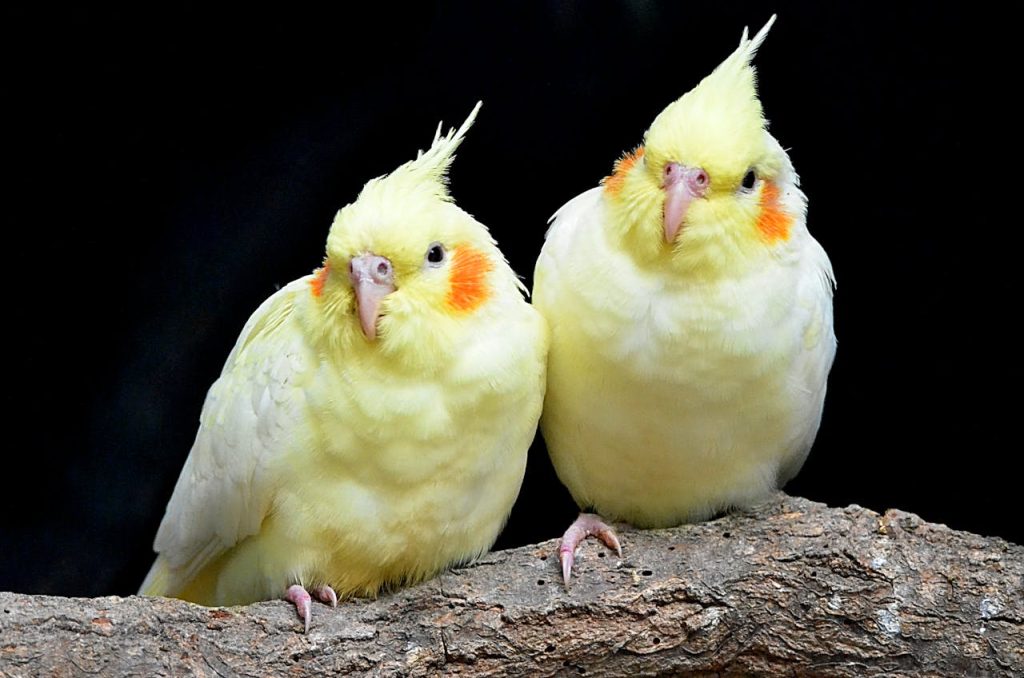
Table of Contents
Introduction
Cockatiels, native to Australia, are small parrots recognized for their friendly personalities and charming appearance. These sociable birds thrive on interaction and can bring immense joy to their owners.
Whether you’re an experienced bird keeper or a beginner, cockatiels make fantastic companions with the right care and attention.
Country or Region of Origin
Cockatiels hail from the open grasslands, scrublands, and bushlands of Australia. They are nomadic by nature, often traveling in flocks to find food and water.
In the wild, they are commonly found near water sources and feed on grass seeds, grains, and small plants. Their natural habitat and adaptability have contributed to their popularity as pets.
Physical Characteristics: Color, Body Size, and Lifespan
Cockatiels are easily recognized by their slender bodies, long tails, and distinctive head crests. They come in a variety of colors, but the most common ones are:
- Grey Cockatiels: Classic grey body with yellow faces and orange cheek patches.
- Lutino Cockatiels: Yellow body with bright orange cheeks and red eyes.
- Pied Cockatiels: A mix of grey and yellow plumage with unique patterns.
- Size: Cockatiels are small to medium-sized birds, typically measuring 12 to 14 inches from head to tail.
- Lifespan: With proper care, cockatiels can live 15 to 20 years, though some have been known to live longer.
Special Traits as Pets
Cockatiels are celebrated for their unique qualities:
- Whistling Talent: Male cockatiels are especially skilled at whistling and can learn simple tunes.
- Affectionate Nature: They love spending time with their owners and enjoy head scratches and gentle petting.
- Head Crest Communication: Their crests are highly expressive, indicating moods such as excitement, fear, or curiosity.
- Social Birds: They thrive on interaction and enjoy being part of the family dynamic.
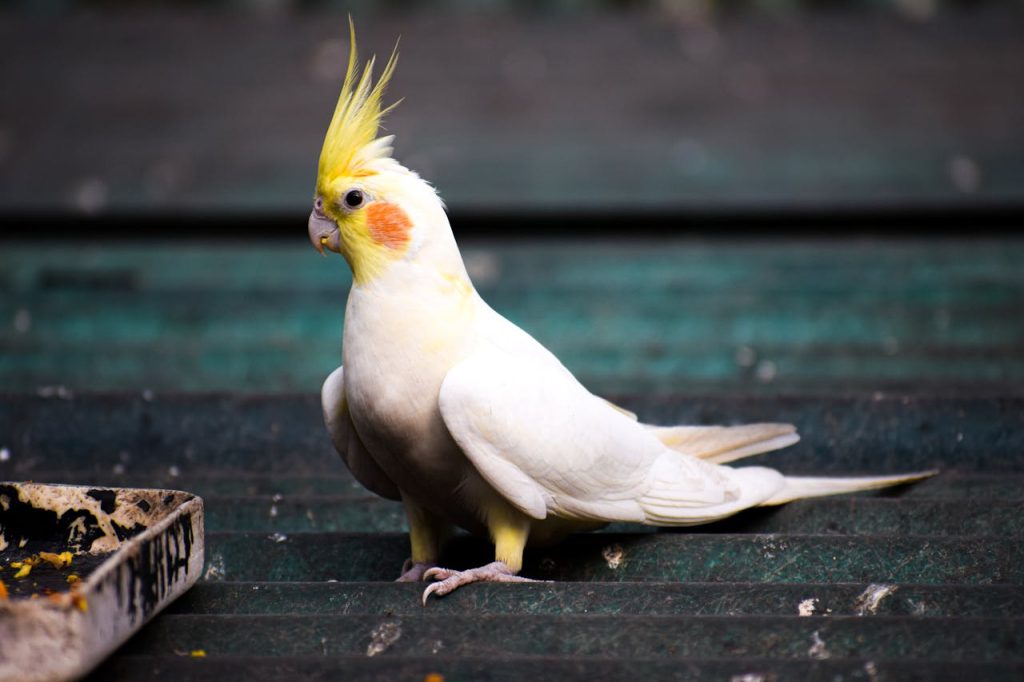
Breeding: Eggs and Chicks
Cockatiels are relatively easy to breed, making them a popular choice for avian breeders. During the breeding season, a bonded pair will:
- Lay 4 to 6 eggs per clutch.
- Incubate the eggs for approximately 18 to 21 days.
- Both parents share the responsibility of incubating the eggs and feeding the chicks after they hatch.
The chicks grow rapidly and begin to fledge (leave the nest) at around 4 to 5 weeks of age. Breeding cockatiels require a quiet, secure environment and appropriate nesting boxes to ensure the pair feels safe.
Common Diseases
While cockatiels are generally hardy birds, they are prone to certain health issues
- Respiratory Infections: Symptoms include sneezing, nasal discharge, and difficulty breathing.
- Psittacosis: A bacterial infection that can be transmitted to humans. Symptoms include lethargy, poor appetite, and green droppings.
- Feather Plucking: Often caused by stress, boredom, or poor diet.
- Vitamin A Deficiency: Results from an imbalanced diet and can lead to respiratory and skin issues.
Regular vet check-ups, a clean living environment, and a balanced diet can help prevent these illnesses.
Special Care Tips for Raising Cockatiels
- Cage Size: Provide a cage that is at least 20x20x24 inches, with horizontal bars for climbing.
- Diet: Feed a mix of pellets, fresh fruits (e.g., apples, bananas, and grapes), vegetables (e.g., carrots, spinach, and broccoli), and occasional seeds or millet as treats.
- Interaction: Spend at least 1 to 2 hours daily interacting with your cockatiel to keep them social and happy.
- Toys: Offer a variety of toys, including chewable materials and mirrors, to prevent boredom.
- Sleep: Ensure they get 10 to 12 hours of uninterrupted sleep in a quiet, dark environment.
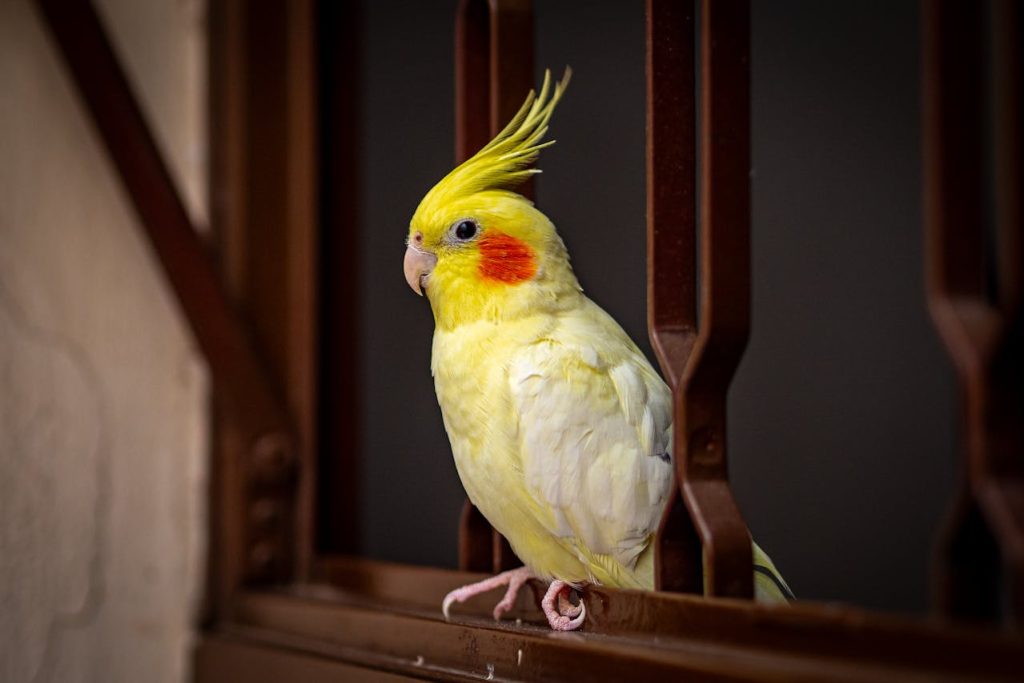
Grooming and Care
Cockatiels are relatively low-maintenance birds, but proper grooming is essential:
- Beak and Nail Care: Provide natural perches to help maintain their beak and nails. Trimming may occasionally be needed.
- Bathing: Offer a shallow dish of water or mist them lightly to keep their feathers clean and healthy.
- Feather Health: Monitor for signs of molting or damaged feathers and provide a healthy diet to support feather regrowth.
Fun Facts About Cockatiels
- Cockatiels are the smallest members of the cockatoo family.
- They can recognize their names and respond when called.
- Male cockatiels are better at mimicking sounds and whistling than females.
- Their crests are mood indicators, with an upright crest signaling excitement or alertness.
- Cockatiels have been bred in captivity since the 1800s.
Challenges of Owning a Cockatiel
While cockatiels are delightful pets, they come with certain challenges:
- Messiness: They can scatter seed hulls and feathers around their cage.
- Noise: Though not as loud as larger parrots, cockatiels can be vocal, especially during early mornings.
- Loneliness: They require regular interaction and can become depressed without socialization.
- Health Monitoring: Owners need to watch for signs of illness, as birds often hide symptoms until they are very sick.
Tips for Cockatiel Owners
- Routine: Establish a daily schedule for feeding, cleaning, and interaction.
- Training: Teach simple commands like “step up” using positive reinforcement and treats.
- Flight Safety: Ensure your home is bird-proofed to avoid accidents during free-flight time.
- Health Care: Schedule annual vet visits and provide a balanced diet to keep your cockatiel in optimal health.
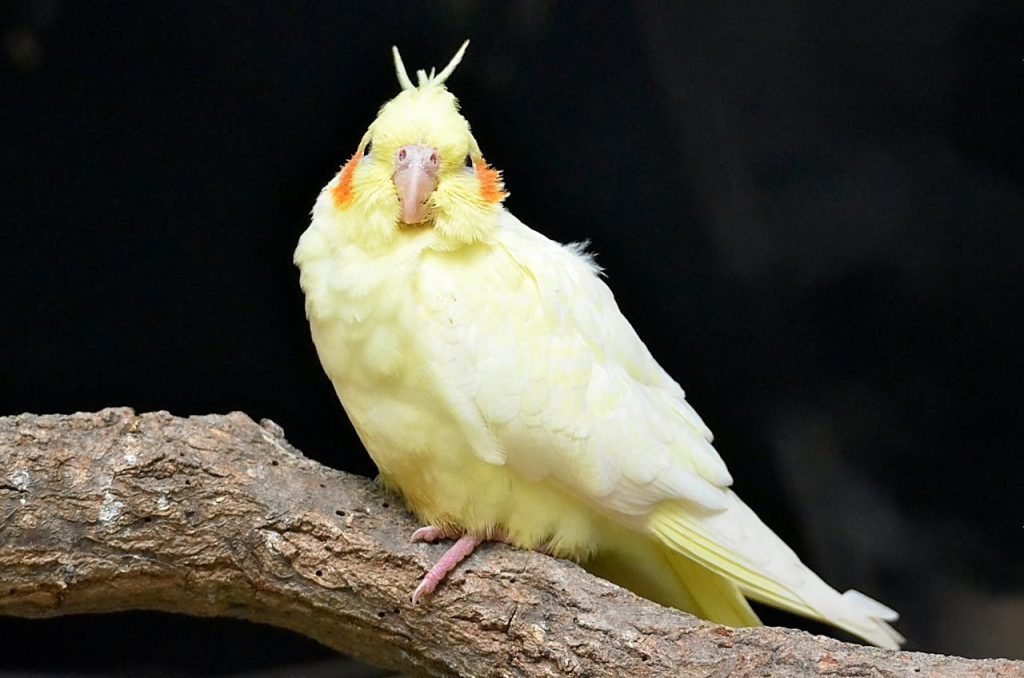
Choosing the Right Cockatiel Chick
When selecting a cockatiel chick, look for:
- Bright Eyes and Smooth Feathers: Indications of good health.
- Active Behavior: A healthy chick will be curious and alert.
- Socialization: Choose a chick that has been hand-raised for better bonding with humans.
Preparing Your Home for a Cockatiel
- Designate a safe and quiet space for their cage.
- Remove toxic plants, secure cords, and ensure windows and doors are closed during free-flight sessions.
- Provide plenty of natural light but avoid placing the cage in direct sunlight.
Socializing Your Cockatiel
- Start by spending time near their cage and talking to them gently.
- Gradually introduce your hand for interaction and offer treats as encouragement.
- Play soft music or whistles to engage them and teach simple tunes.
Travel and Transportation
- Use a secure and well-ventilated carrier for transport.
- Familiarize your cockatiel with the carrier beforehand to reduce travel stress.
- Bring along familiar toys and food for comfort during longer trips.
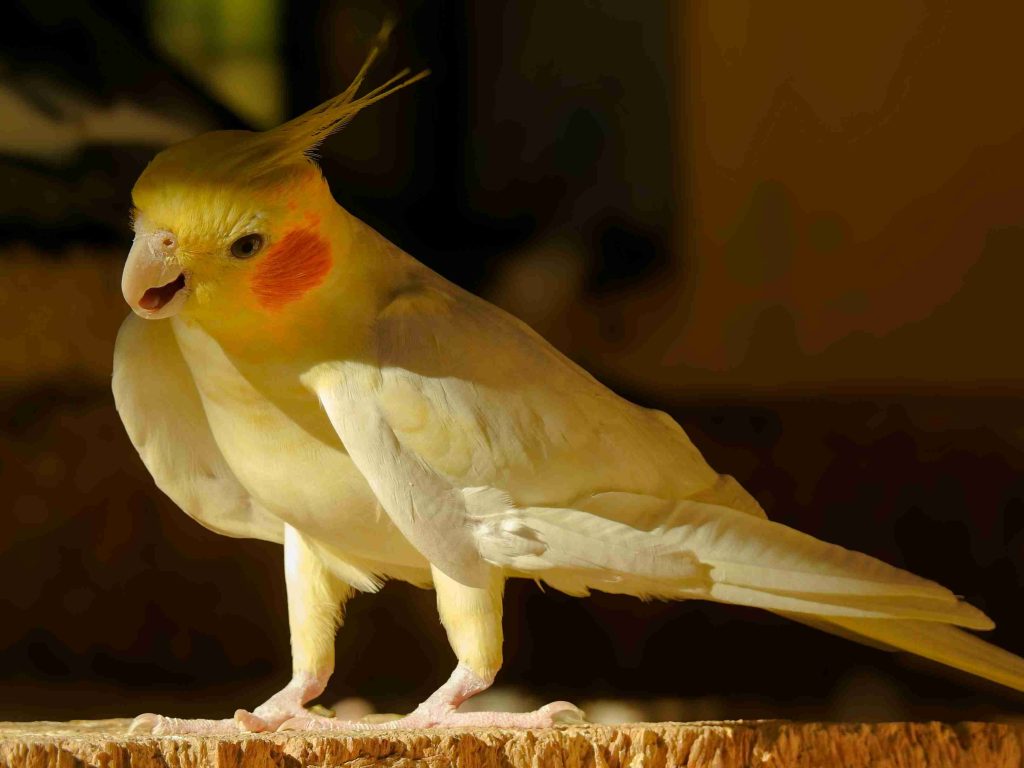
Why Birds Make the Perfect Pets
Birds like cockatiels are intelligent, affectionate, and entertaining companions. They are ideal for individuals or families who can dedicate time and attention to their care.
Learn more about why birds are fantastic pets in our article Why Birds Make the Perfect Pets?
Learn More About Bird Breeds
For bird enthusiasts exploring other exotic species, discover the beauty and charm of macaws in our article Macaws Majestic Pet Birds, Jewels of the Avian World.
Conclusion
Cockatiels are charming, low-maintenance pets that can bring years of joy to their owners. Their affectionate nature, coupled with their ability to whistle and interact, makes them an excellent choice for bird lovers. With proper care and attention, cockatiels can thrive and form lifelong bonds with their human companions.
FAQs
Can Cockatiels Speak?
Cockatiels can mimic a few words and sounds, especially whistles, but they’re not as skilled as larger parrots.
Is a Cockatiel a Good Pet?
Yes, they are friendly, affectionate, and great for beginners or families.
What Not to Do With a Cockatiel?
Avoid handling them roughly, exposing them to drafts, or feeding them toxic foods like chocolate or avocado.
How Long Do Pet Cockatiels Live?
With proper care, they can live 15 to 20 years, sometimes longer.


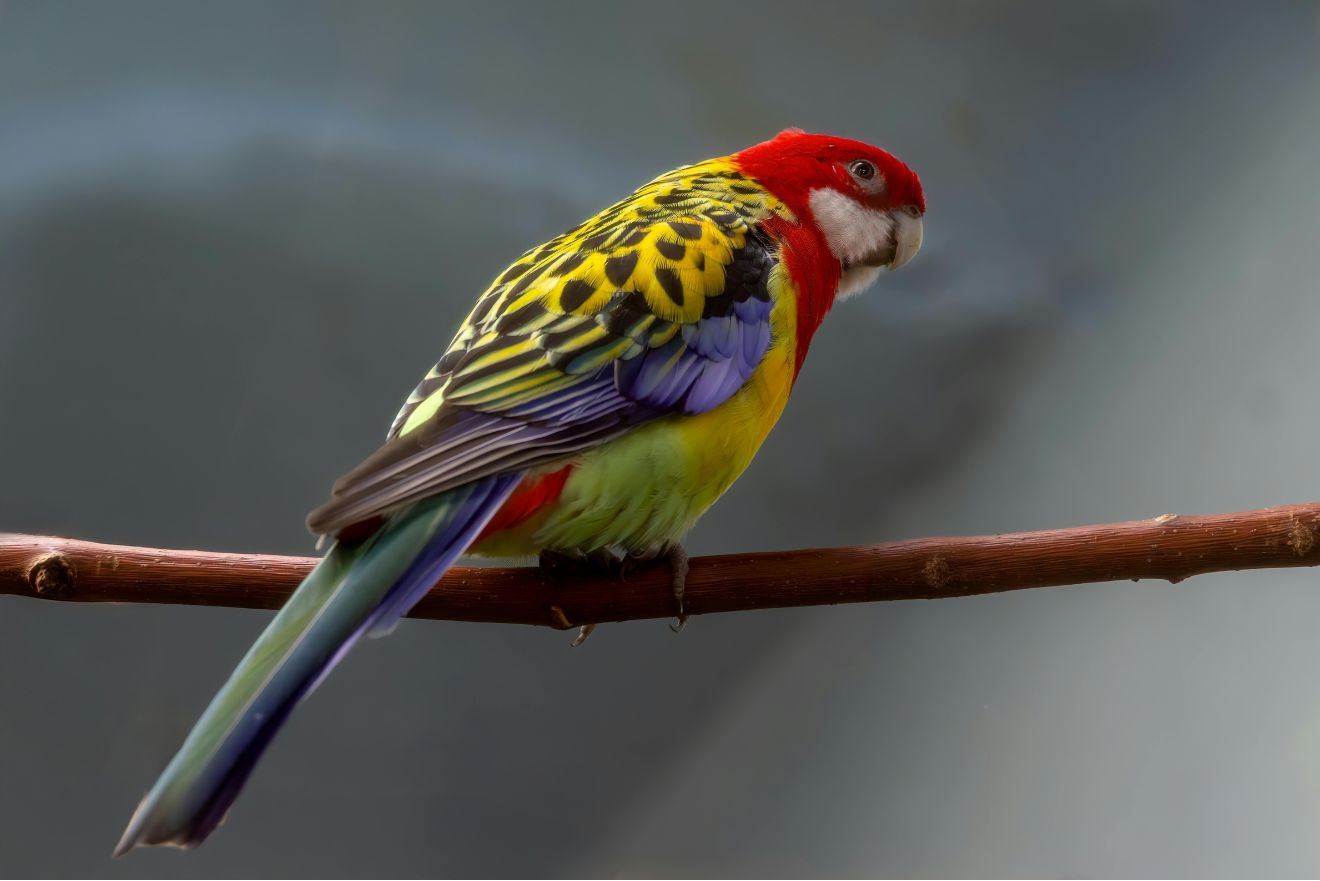

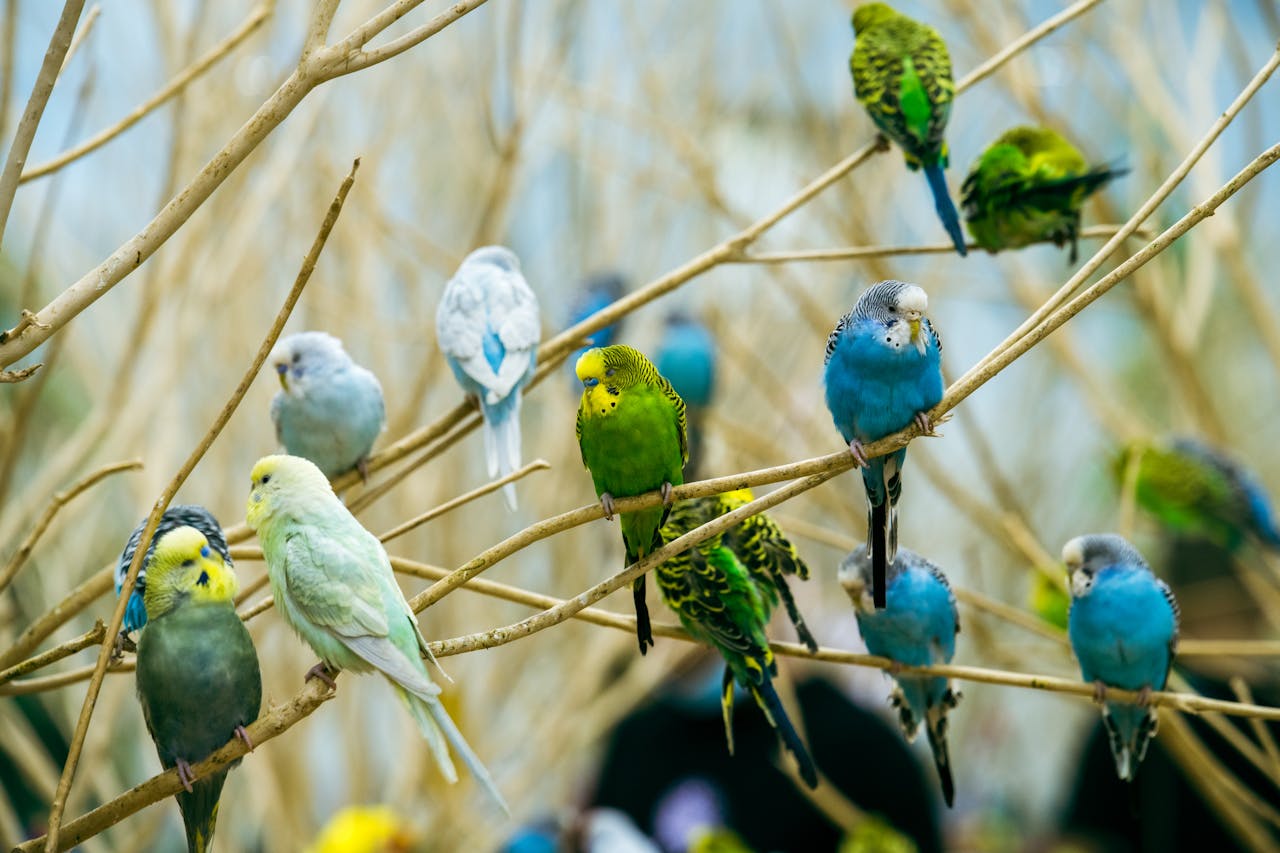
3 Comments
Pingback: Lovebirds Behavior & Bonding: Secrets to a Happy Pet - Pet Bonded
Pingback: African Grey Parrots: Why They Are the Smartest Pet Birds - Pet Bonded
Pingback: Canaries: The Ultimate Guide to These Melodic Singers in the Bird World - Pet Bonded